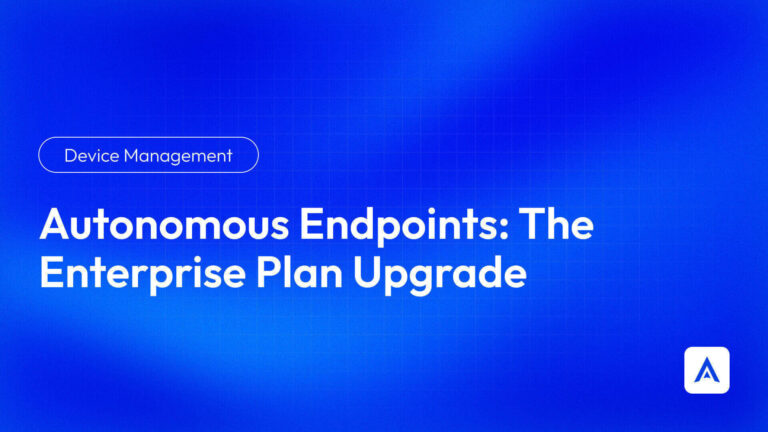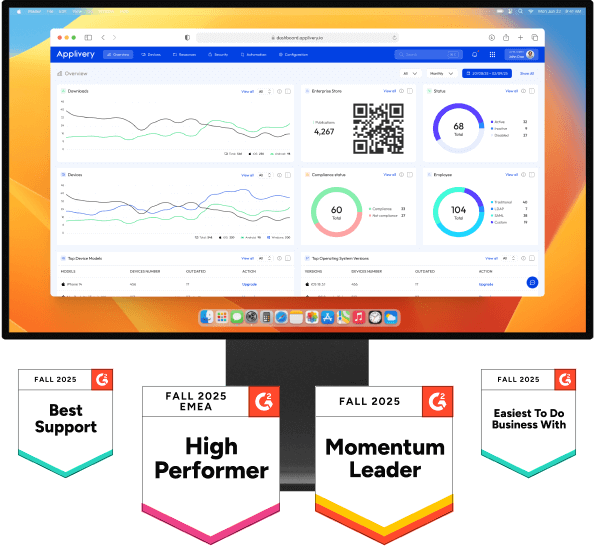For IT and DevOps leaders managing complex fleets—including Android, Apple, and Windows devices across industrial operations or demanding B2B environments—efficiency today is rooted in autonomy, not just control. At Applivery our goal is taking a step further towards the full autonomous endpoint management.
However, this vision often collides with the reality of traditional monolithic MDM architecture. The limitation of one policy per device creates an operational chain. This rigidity prevents your fleet from becoming self-governing, forcing your IT teams to maintain an unmanageable number of duplicated policies and consuming valuable resources on reactive tasks.
The Applivery Enterprise Plan delivers the necessary infrastructure upgrade to break that chain. Its new automation engine is strategically designed to eliminate this friction and transform your endpoint management into a proactive and autonomous operation.
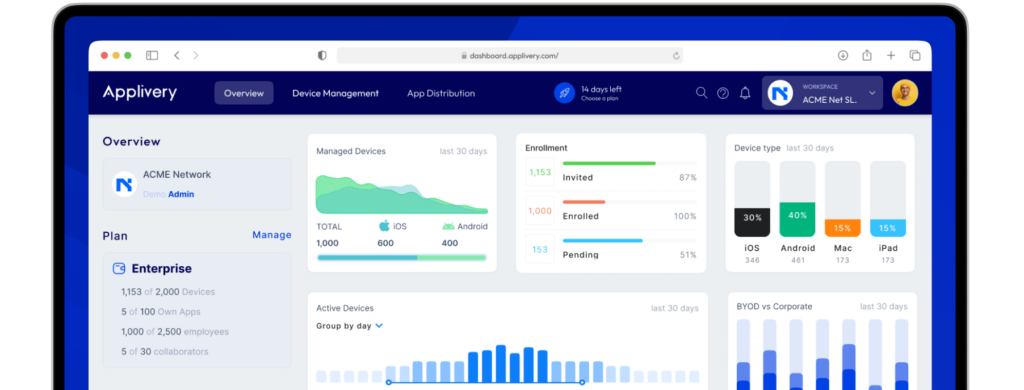
Foundation for scale: Interpolation is now generally available
Before diving into the core of autonomy, we’ve launched a key feature available to all customers: Interpolation.
This feature is a game-changer for personalization at scale. You can now easily reference and replace dynamic values (like device names, user details, or your own custom attributes) directly within your configurations and policies. Think of it as creating smarter, more flexible templates for deployment—resulting in less manual work and more personalized setups. Explore more in our documentation.
Applivery Enterprise Plan: the intelligence engine for operational autonomy
The new Automation and Targeting engine within the Enterprise Plan is designed to build the logic for your fleet to achieve autonomy. These powerful tools convert reactive management into rules of self-governance. The following advanced features are exclusively available in Private Access for Applivery Enterprise Plan customers:
Policy Composition: the foundation of autonomy
For an endpoint to be autonomous, it must be able to handle complex security and usability requirements. Policy Composition solves this by allowing multiple, overlapping policies to be assigned to a single device:
Automatic conflict resolution: using a priority weight system (1 to 1000), the device knows which security rules prevail (e.g., a “HIPAA Compliance Policy” over a “General Usability Policy”).
Layered configuration: an endpoint can automatically comply with its role policy, its location policy, and its base security policy—all without manual intervention.
Learn more about Policy Composition in our documentation.
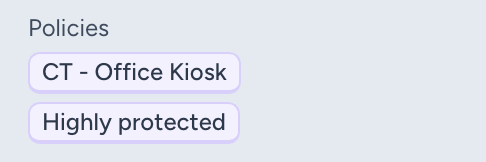
Device Audiences: intelligent deployment segmentation
Autonomy at scale requires dynamic deployments. Audiences allow you to segment your fleet into intelligent groups that automatically update based on custom attributes (such as device type or user role) or real-time properties.
Frictionless DevOps flows: a new application build is automatically distributed to the “Audience: Industrial App Testers v2.5” without your DevOps team managing static lists.
Visit our documentation to learn more.
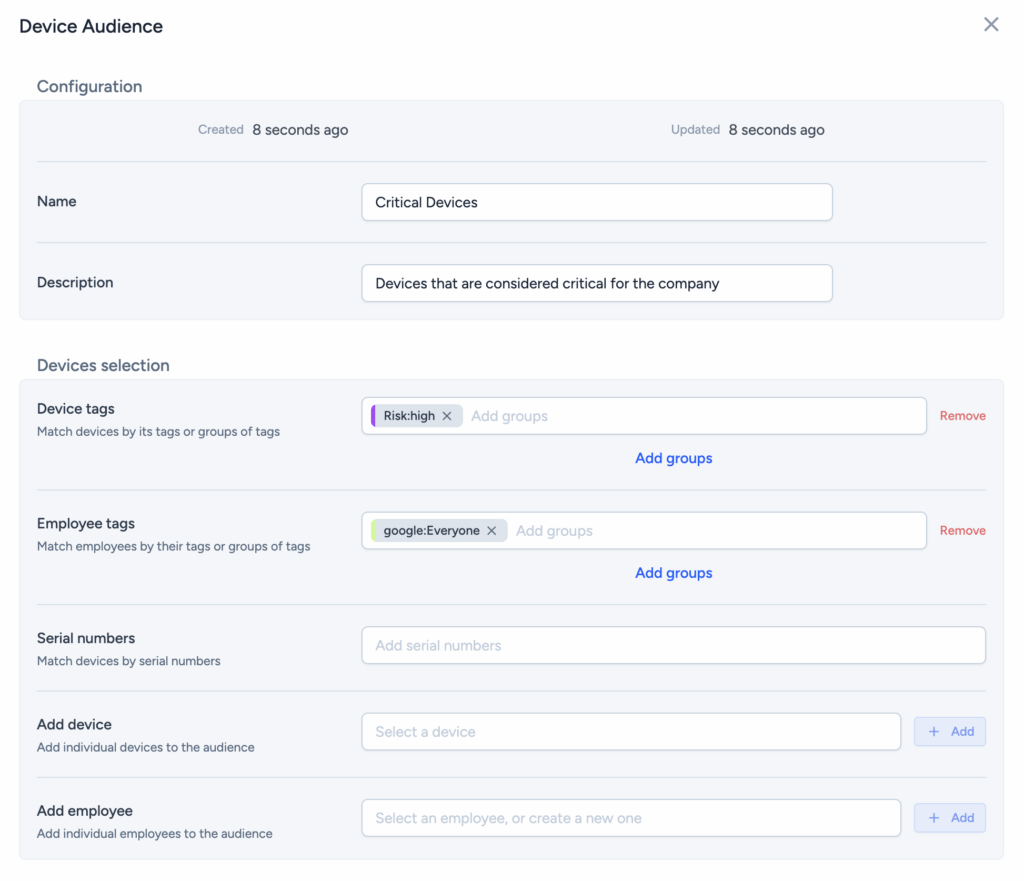
Automation Rules: endpoint self-governance
This is where autonomy comes to life, allowing the platform to make operational decisions for you:
-
Proactive maintenance (IT example): if a certificate is 10 days from expiring, then automatically trigger the renewal process.
-
Autonomous security example: if a device joins the “Audience: Management Team,” then automatically apply the “Executive Policy”.
Check our documentation.
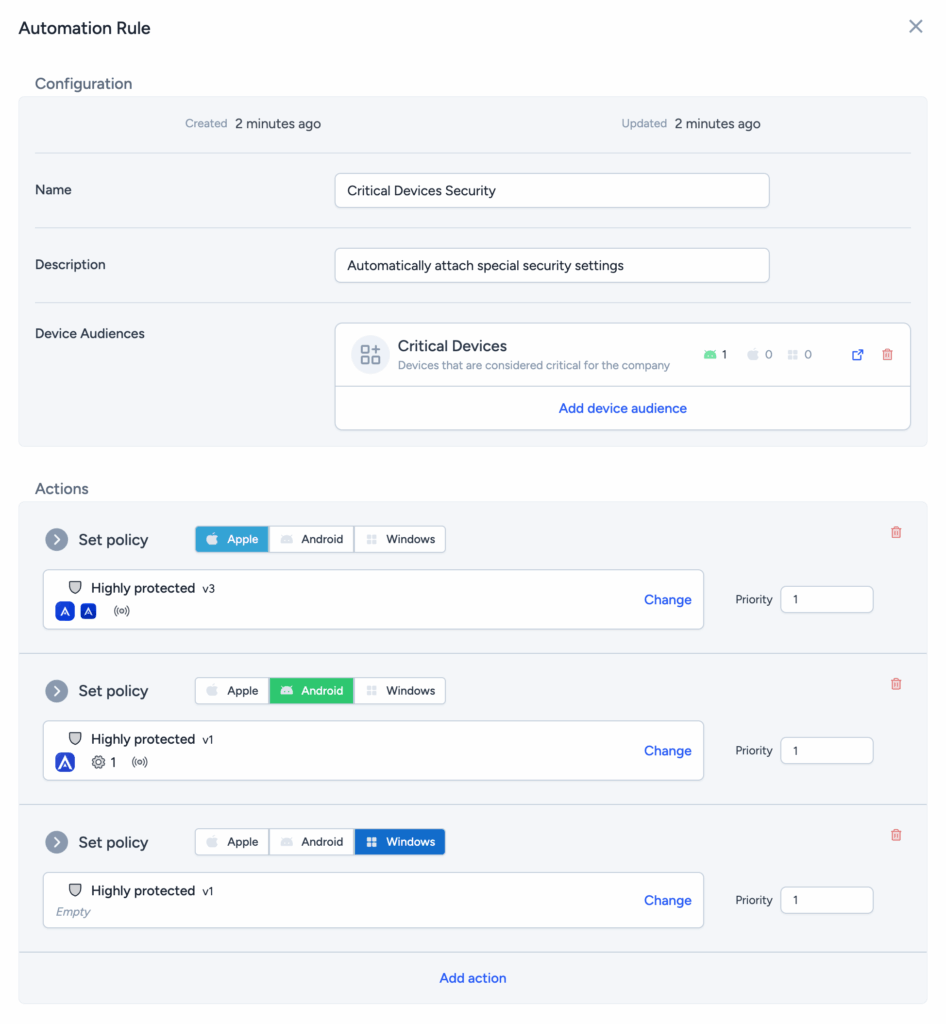
Advanced Certificate Management
Streamline security by managing, deploying, and renewing digital certificates directly from Applivery. This includes a new infrastructure component that allows you to connect Applivery with your own Certificate provider for fully automated issuing and renewal.
The base for scale: enterprise-ready tools
These advanced functionalities are built upon the foundation that the Enterprise Plan already offers for operational maturity:
Cross-platform unification: consolidated management of iOS, Android, macOS, and Windows, which is critical for complex fleets.
B2B standard security: the plan includes Single Sign-on (SSO) and provides an operational guarantee with a 99.9% uptime SLA.
Native DevOps agility: distribution of internal application builds with CI/CD integration.
Personalization at scale: the Interpolation feature allows you to reference and replace dynamic values (device name, user) directly within configurations to personalize deployments without manual effort.
Achieving leadership through operational autonomy
Full Autonomous Endpoint Management is a competitive necessity. The Applivery Enterprise Plan with its new automation engine is a strategic investment that results in a drastic reduction in your manual IT tasks and a tangible acceleration of your DevOps cycle.
Delegating policy enforcement to intelligent infrastructure logic is the decision that allows your company to scale complexity with confidence.
If you are already an Enterprise customer: your platform already has the new engine. Contact your Customer Success Manager to request activation and unlock your management autonomy.
If you are not yet on the Enterprise Plan: your MDM architecture is one step away from resilience and scalability.
See how Applivery’s platform gives you the granular, hardware-level control you need to automate setups and optimize performance.
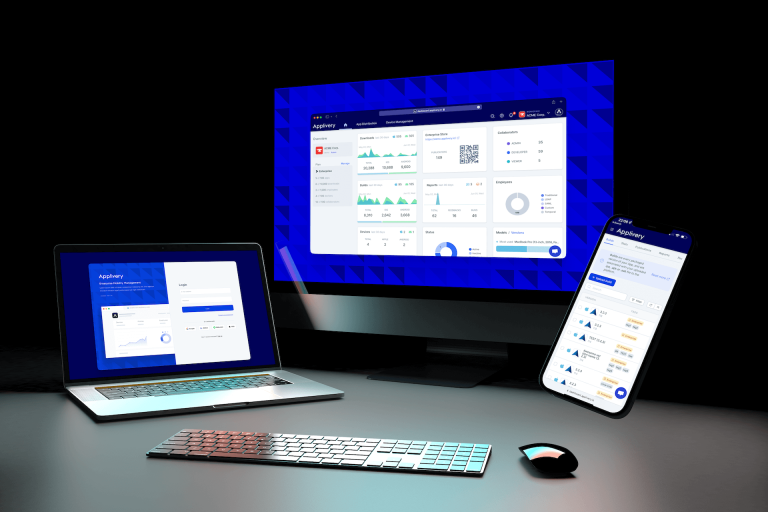
Frequently Asked Questions (FAQ)
What is Applivery's core vision for Autonomous Endpoint Management (AEM)?
Applivery's vision is to move a step further towards the full autonomous endpoint management, allowing your devices to self-govern based on dynamic rules set via the new Automation engine.
What problem does Policy Composition solve for Enterprise IT teams?
It solves the one policy per device limitation. It allows you to assign multiple, overlapping policies to a single device, using a priority weight system (1-1000) for automatic conflict resolution, significantly enhancing security and compliance.
How do Device Audiences simplify large-scale deployments?
Device Audiences let you segment your fleet into intelligent, dynamic groups based on real-time properties or custom attributes. This allows for targeted deployments and safer, phased rollouts of applications and configurations using Automation Rules.
What is the function of the new Automation Rules?
Automation Rules are the core of self-governance. They allow you to set up automatic actions triggered by specific events, such as applying the 'Executive Policy' when a device joins the 'Management Team' Audience.
Is the Advanced Certificate Management automated in the Enterprise Plan?
Yes. The Enterprise Plan includes a new infrastructure component that allows you to connect Applivery with your own Certificate provider for fully automated issuing and renewal, ensuring secure device access without manual intervention.
What essential features does the Enterprise Plan offer for operational maturity?
The plan includes Single Sign-on (SSO), guaranteed 99.9% uptime SLA, remote support, custom enrollment, and full cross-platform unification (Android, Apple, Windows).


